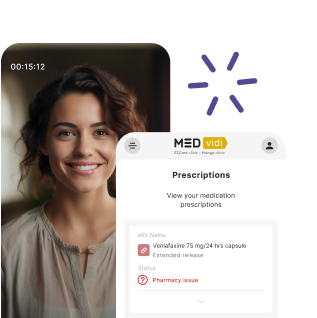Their inclusion does not guarantee they will be prescribed to any individual, as treatment decisions are ultimately at the discretion of healthcare providers. Healthcare providers may prescribe other medications or recommend non-pharmacological treatment based on the patient’s unique health circumstances and needs. Read more
Both
Highlights
- Xanax is a prescription medication used for treating certain anxiety disorders.
- Adderall is commonly prescribed for the treatment of attention deficit hyperactivity disorder (ADHD).
- Anxiety and ADHD often co-exist, and Xanax and Adderall might be prescribed together but it is not commonly recommended and requires a doctor’s supervision.
- Mixing Adderall and Xanax can result in an increased risk of overdose and addiction.
You have likely heard of two medications, Xanax (alprazolam) and Adderall (amphetamine/dextroamphetamine), when talking to colleagues or friends, or online; they sound like ‘serious’ medications not to be taken lightly. You might also have been taking one of them, and you’re wondering if it is safe to use them together.
By the end of this article, you will have your answers.

What Is Xanax?
Xanax is a benzodiazepine prescription medication used to treat anxiety disorders because of its calming effect on brain activity. It does this by enhancing the action of the ‘relaxation’ chemical GABA (gamma aminobutyric acid).
What Is Adderall?

Key Differences: Xanax vs Adderall
|
Xanax |
Adderall |
|
|
Generic Name |
Alprazolam |
Amphetamine + dextroamphetamine sulfate |
|
Drug Class |
||
|
Approved Uses |
Specific anxiety disorders:
|
|
|
Effects |
|
|
As you can see, they have opposite effects on the brain and body, so how do they interact?
Interaction Between Adderall and Xanax
If you check for Xanax and Adderall drug interactions online, for example, on Medscape or
- A significant interaction is possible
- Monitoring by a doctor is required
So, it is not common to take them together, and if someone needs the combination, medical supervision is a must.
When Can You Take Adderall and Xanax Together?
Despite the Adderall and Xanax interactions, you can take them together if they are prescribed by the same healthcare professional — although it is a rare situation, and alternative approaches are typically considered.
Believe it or not,
If these two medications are prescribed together, it is important to follow the prescribed dosage and timing to avoid unnecessary risk.
But why is there a risk? If one is a downer and the other an upper, shouldn’t their potential side effects be ‘canceled out’?
Let’s look closer at the importance of strict medical supervision to balance the effects safely.

Dangers of Combining Adderall and Xanax
Because of their opposing effects, combining Xanax with Adderall can be a dangerous practice, leading to serious risks of addiction, abuse, and overdose. Let’s look at why this happens.
Increased Risk of Addiction
Both Adderall and Xanax are controlled substances and have a boxed warning; even if you are only taking one of these medications, you have a risk of substance abuse,
Decreased Effectiveness of Both Drugs
Even when used alone at prescribed doses, Adderall can potentially have serious effects. Now,
The opposite is true for individuals who are only taking Xanax for anxiety. When they take Adderall, their anxiety might spike; they need more Xanax to get the ‘downer’ or calming effect, leading to a higher risk of deadly adverse reactions and overdose.
This decreased effectiveness of one medication and the need for more of the other increases the risk of addiction further.
Never exceed the prescribed dosage and avoid combining medications without consulting with your healthcare provider first to avoid dangerous health consequences.
Recognizing Misuse and Addiction
Misuse means using a medication when it wasn’t prescribed for you. In other words, if you consider the misuse of Adderall, young adults may take it to help them concentrate or stay awake while studying. In 2017, about
Misusing Xanax might happen when someone who has a sleep disorder takes a few tablets from their friend who was prescribed Xanax for their panic attacks.
Doctors screen people’s history and co-existing medical conditions to ensure safe medication use before prescribing it.
Taking any medication not prescribed for you is dangerous. Avoid self-medication.
Withdrawal symptoms can include:
- Shaking
- Sweating
- Headaches
- Seizures symptoms
- Mood swings
- Feeling spaced out
- Problems sleeping or sleeping too much
- Depression
Drug dependence is connected with addiction. It can start with tolerance, which is needing an increased dose for the same effect over time. It then can progress to dependence, a psychological and physical requirement for continuous use of the medication to feel normal (or functional). Finally, it can develop into addiction. Importantly, the warning signs of
Signs and Symptoms of Adderall Abuse and Overdose
Because Adderall is an ‘upper’, it causes a spike in the body functions, causing:
- Severe anxiety
- Hallucinations
- Aggression
- Abnormal heart rhythms
- Heart failure
- High blood pressure
- High heart rate
- Strokes and heart attacks
- Seizures
Signs and Symptoms of Xanax Abuse and Overdose
The key
Because Xanax is a ‘downer’, it causes a drop in the body functions, causing extreme side effects which can be life-threatening:
- Severe sedation
- Respiratory depression (slow and shallow breathing)
- Confusion
- Dizziness and falls
- Slurred speech
- Low heart rate
- Low blood pressure
Dependence and Addiction Treatment and Recovery
Addiction recovery focuses on reducing doses of the medication until the person no longer craves and seeks it, and can be done in a hospital or as an outpatient.
Xanax addiction treatment is a long process and needs to be supervised by a doctor. Because of the potential dangers of withdrawal symptoms, the dose must be dropped exceptionally slowly, since the brain and body need the benzodiazepine to function. Adderall detox also requires a tapering-off strategy along with counseling or therapy.
Using Adderall with Xanax sounds terrifying, so what other options are there?
Possible Alternatives to Address ADHD and Anxiety
If Adderall is making anxiety disorder worse, there are alternatives; your doctor may recommend using non-stimulant ADHD medications, which have fewer side effects.
Xanax is usually not a first-line medication for anxiety because of the potential for addiction. It is more likely that your healthcare provider will start you on antidepressants, such as selective serotonin reuptake inhibitors (SSRIs) or serotonin-norepinephrine reuptake inhibitors (SNRIs). These medications are less likely to mask the stimulant effect of Adderall.
Also, other non-medication options exist, such as holistic therapies (mindfulness meditation and yoga) and talk therapy.
Summing Up
Summing it up, it is generally not recommended to take Adderall and Xanax simultaneously for chronic use; see your medical provider for a consultation to determine the most appropriate treatment for you.
Proper medical guidance is vital when being treated for ADHD or anxiety. If you believe that you may benefit from a Xanax trial or an Adderall prescription, book an appointment to find out about online ADHD treatment.
FAQs
Is Adderall a benzodiazepine?
No, Adderall is not a benzodiazepine; it is a stimulant medication prescribed for attention deficit hyperactivity disorder (ADHD).
Can you take anxiety medication with Adderall?
Yes, you can take anxiety medication with Adderall as long as your doctor prescribes it. Sometimes it is necessary, as anxiety disorders and ADHD frequently co-exist.
Can you be on ADHD medications and anxiety medications at the same time?
Yes, you can take ADHD and anxiety medication at the same time as long as your doctor prescribes it.
What happens if you take Xanax and have ADHD?
If you take Xanax and have ADHD, it may cause you to lose focus and feel tired because of its calming and sedating effects.
How long after taking Xanax can I take Adderall?
You must consult your doctor if you are unsure of how to take Adderall and Xanax; you should never mix these medications unless prescribed for you by a healthcare professional who is aware that you are taking them both.
Can I take Adderall during the day and Xanax at night?
Only take Adderall and Xanax on the same day if your doctor has recommended it; never accept medication from anyone if it was not prescribed for you.













